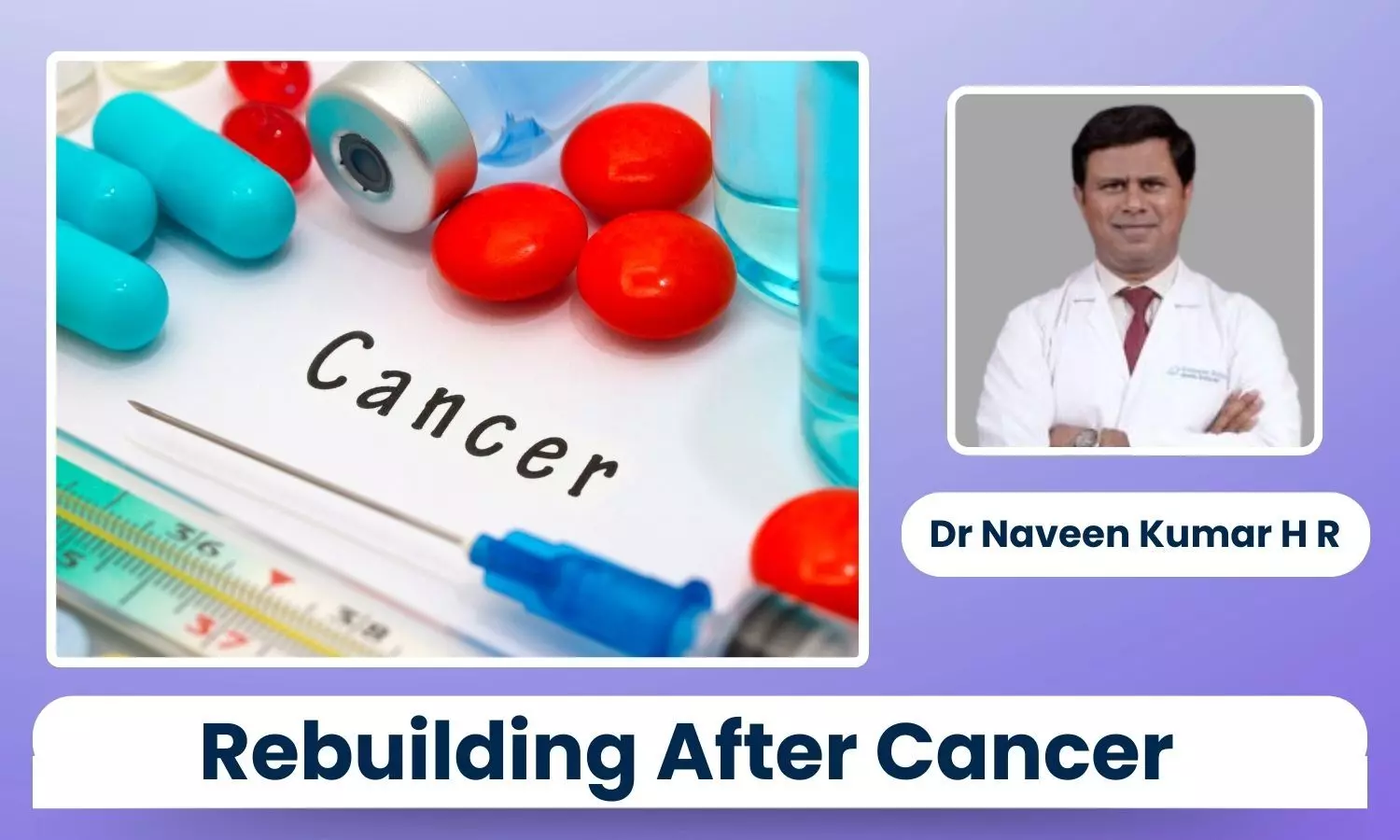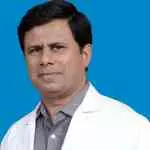Rebuilding After Cancer: The Quiet Power of Reconstructive Surgery - Dr Naveen Kumar H R

Cancer treatment is often framed around survival. And for good reason, it’s the first battle to win. But for many patients, the journey doesn’t end once the tumour is gone.
That’s when a different kind of healing begins, one that has less to do with chemotherapy or scans, and more to do with looking in the mirror and recognising oneself again.
After cancer treatment, many people are left with visible scars, changes in appearance, or the absence of body parts they never thought twice about. Changes to the body after cancer often come with quiet emotional weight.
They can change how a person walks, how easily they smile, or how at ease they feel in their skin. Reconstructive surgery isn't about look,s it's about helping someone feel whole again.
More Than Skin Deep
Changes caused by cancer aren’t always hidden beneath the skin; sometimes they’re visible on the face, chest, or limbs.
And when that happens, it can quietly alter the way a person moves through the world. People may start keeping to themselves, avoiding familiar routines or social gatherings.
Even speaking to someone can feel different, shaped by a new self-consciousness that didn’t exist before.
In such cases, reconstructive surgery is far from optional. It’s often the bridge between surviving cancer and fully returning to life.
Whether it’s helping a woman feel whole again after a mastectomy or enabling someone to eat and speak after jaw surgery, the impact is deeply personal.
Breast Reconstruction: Healing What Isn’t Seen
One of the most commonly performed reconstructive procedures is after breast cancer surgery. A mastectomy may save a life, but it can also leave behind a profound sense of loss.
Today’s surgical techniques offer women the chance to restore what cancer took away, not just physically, but emotionally, too.
Options range from implants to autologous tissue flaps taken from the abdomen or back. In many cases, reconstruction can happen at the same time as cancer surgery. For others, it may come later, when they feel ready.
There’s no one-size-fits-all approach. What matters is that the choice exists and that women are supported in making it.
Face and Neck Reconstruction: Restoring Function and Identity
Head and neck tumours bring challenges that are different from other cancers. Surgery in these areas can change how a person eats, talks, or breathes. Repairing the damage takes careful planning and a high level of surgical skill.
Using advanced microsurgical techniques, surgeons can transfer tissue from one part of the body to rebuild areas damaged by cancer. A section of skin and muscle from the thigh, for example, may be shaped to restore parts of the tongue or cheek.
These operations are highly specialised, but they often restore essential functions, allowing patients to speak, eat, and engage with the world again.
Limb and Skin Repairs: Preserving What Matters
When cancer affects the limbs or skin, surgery may mean taking out large sections of tissue.
But while clearing the disease comes first, surgeons work just as carefully to protect movement, avoid disability, and keep the limb intact.
Through skin grafts, flap surgeries, and tissue transfers, surgeons work to rebuild what’s been lost, ensuring patients can walk, grip, or move with as little limitation as possible.
For many, these are the procedures that quietly return a sense of control and capability to their daily lives.
Personalised Surgery, Personal Healing
Every cancer patient carries a different story. And so, reconstructive surgery must also be personalised, built around the patient’s specific needs, goals, and lifestyle.
Some want to return to work quickly. Others want to feel confident in their clothes. Some simply want to be able to eat a meal comfortably with their family again.
A multidisciplinary approach is key to this kind of care.
Plastic surgeons collaborate closely with oncologists, physiotherapists, and counsellors, because healing is never just about stitches or scars; it’s about restoring the person as a whole.
Rebuilding What Matters Most
Reconstructive surgery has evolved rapidly in recent years. With better imaging, precise microsurgical tools, and improved anaesthesia, procedures that once seemed too difficult are now within reach.
Even those with other health issues or complicated needs can often be offered safe, personalised solutions.
But while technology has raised the bar, the heart of this work lies elsewhere.
For most patients, the goal isn’t to chase perfection; it’s about feeling whole again. It’s about being able to look in the mirror without flinching, to meet people’s eyes, to get back to a daily routine without reminders of what they’ve lost.
Beyond the Scars
Cancer may leave its mark, but that mark doesn’t have to shape the rest of someone’s life. What plastic and reconstructive surgery offers is not just skin-deep change; it’s a second chance.
A chance to move forward with confidence, to restore function and appearance, and to rebuild parts of life that treatment may have disrupted.
For those struggling with the after-effects of cancer surgery, it’s important to know that support doesn’t end with tumour removal.
There are specialists trained to help close the loop, not just medically, but emotionally and functionally too. Because healing, in its truest form, is about more than just survival. It’s about feeling like yourself again.
Disclaimer: The views expressed in this article are of the author and not of Health Dialogues. The Editorial/Content team of Health Dialogues has not contributed to the writing/editing/packaging of this article.


